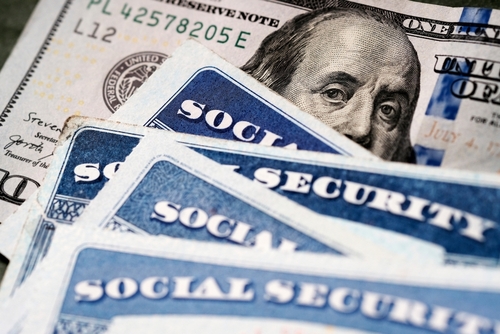Millions of seniors counting on Social Security are about to see their monthly checks slashed in half, thanks to a government policy that punishes the very Americans who earned every penny—while bureaucratic blunders and wasteful spending rage on.
Government Overreach Hits Seniors Where It Hurts Most
The Social Security Administration, the same agency that can’t keep its own math straight, has decided it’s time for America’s seniors to pay for its mistakes. On July 24, over one million retirees, disabled Americans, and survivors will see up to half their monthly benefits withheld for so-called overpayments that, in many cases, result from bureaucratic errors rather than any wrongdoing by recipients. You read that right: Uncle Sam messes up, and it’s the people who did everything right—paid in, followed the rules, and depended on those checks—who get shortchanged. This isn’t just a policy shift; it’s a gut punch to the backbone of American society.
For decades, Social Security has been the safety net keeping millions above the poverty line. Now, the same government that can’t balance a checkbook is clawing back $23 billion in alleged overpayments, using a punishment-first approach that would make even the IRS blush. Last year, after massive public backlash and media scrutiny, the SSA capped these clawbacks at 10% of a recipient’s monthly check. It wasn’t perfect, but at least it left folks with enough to buy groceries. Not anymore. The new 50% garnishment rule is a return to draconian tactics—punishing the innocent for the sins of a bureaucratic leviathan.
The Real Impact: Seniors and Disabled Americans in the Crosshairs
Who’s getting hurt by this? Not the politicians or the six-figure administrators. It’s the 16 million Americans—mostly seniors and disabled folks—who rely on Social Security for essentials like food, rent, and medicine. The SSA is currently tracking nearly two million overpayment cases, and more than one million recipients are at immediate risk of seeing their checks cut in half. For many, this isn’t a minor inconvenience; it’s the difference between eating or skipping meals, paying the power bill or living in the dark, affording medication or ending up in the ER.
So you downloaded all of our Social Security information but didn’t make a copy of the Epstein files? pic.twitter.com/FKijsDpaDi
— Middle Age Riot (@middleageriot) July 9, 2025
This policy doesn’t just hit individuals; it ripples through entire communities. When seniors and disabled Americans lose half their income overnight, local economies suffer. Charities, churches, and food banks—already stretched thin by inflation and waves of illegal immigration—will be forced to do even more with even less. And let’s not forget: all this is happening after years of reckless government spending and endless handouts to non-citizens, while those who built this country are told to tighten their belts.
Options for the Punished: Waivers, Appeals, and Red Tape
The bureaucrats will tell you there are “options.” Sure, recipients can file for waivers, appeal the overpayment determination, or negotiate new repayment plans. But let’s call this what it is: a mountain of paperwork, legal hurdles, and months—if not years—of uncertainty. Legal advocates, financial advisors, and nonprofits are already bracing for a tsunami of desperate calls from people who have no idea why their checks are being gutted. Most overpayments happen because of government miscalculations or sluggishness in processing changes—not because everyday Americans are trying to game the system. Yet, it’s the most vulnerable who are forced to prove their innocence or beg for mercy.
“DEMOCRATS HANDED OUT MILLIONS OF SOCIAL SECURITY NUMBERS TO ILLEGAL ALIENS”
Yet Democrats deny that social security numbers are given to non-citizens. They are lying.
Democrats also deny that legal and illegal non-citizens receive benefits such as free healthcare, free… pic.twitter.com/xaDgcwnnqt
— J Kerner (@JKernerOT) July 8, 2025
Meanwhile, the same government that can’t stop spending billions on pet projects, foreign aid, and “emergency” relief for everyone but Americans has no problem nickel-and-diming the people who actually paid into the system. Experts warn that this policy could trigger a surge in homelessness, food insecurity, and preventable health crises among seniors. And if you think trust in government was low before, just wait until more people open their mail and see their Social Security checks slashed in half.
Where’s the Accountability for Bureaucratic Blunders?
The irony could not be thicker. While Congress bickers and bureaucrats bungle, seniors who did nothing wrong are left to pick up the tab for decades of administrative incompetence. Overpayments are almost always the result of SSA errors—slow processing, outdated systems, or rules so convoluted even their own employees can’t keep them straight. And yet, it’s the little guy who pays. Legal advocates and some policymakers are calling for reforms to limit garnishments to cases of proven fraud or gross negligence. But don’t hold your breath; when was the last time Washington fixed a problem it created?
What’s clear is that this new garnishment policy is not about fairness, fiscal responsibility, or protecting the Social Security system. It’s about shifting the burden from a bloated, unaccountable government onto the backs of America’s seniors—while the real culprits skate by. If you want to see government overreach and misplaced priorities in action, look no further.
Sources:
Social Security Garnishment to Impact 1M Starting July 24: How to Protect Yourself
Social Security Garnishment Hits 1 Million
Click this link for the original source of this article.
Author: Editorial Team
This content is courtesy of, and owned and copyrighted by, https://ourpatriot.com and its author. This content is made available by use of the public RSS feed offered by the host site and is used for educational purposes only. If you are the author or represent the host site and would like this content removed now and in the future, please contact USSANews.com using the email address in the Contact page found in the website menu.








